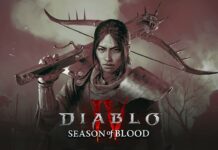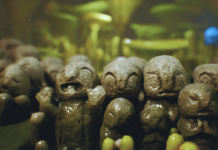Dungeons and Dragons has been one of the most dominant tabletop roleplaying games since its creation in the 70s. But scandal arose when Wizards of the Coast made some very upsetting announcements in recent months. Read on to find out what exactly upset the D&D community.
A history of success

Created in 1974 by Gary Gygax, Dungeons and Dragons was the first tabletop game that introduced roleplaying mechanics. The game has had multiple editions over the years, with the latest being 5e, which came out ten years ago. In late 2022, Wizards of the Coast announced that the next edition would be called “One D&D”.
Community content is a massive part of the Dungeons and Dragons world. Fans and smaller companies have created tons of new content throughout the game’s history. And this is obviously advantageous for Wizards of the Coast as well, since it adds a lot of replayability to the game. Some of this content was so successful that it became part of the actual game canon. And all of this worked because of the OGL (Open Game License) under which Dungeons and Dragons operated, which ensured that anyone could rightfully create their rulesets and content for the game.
The outrage

The controversy started when Wizards announced possible plans for a new OGL. This OGL would place a lot of new restrictions on third-party content. It would also force any company to pay Hasbro 25% of royalties above the $750,000 per year mark. Reactions to this new OGL draft were universally adverse. Many companies called this a “monopolistic and anti-competitive” move, aimed solely at raising more money for Hasbro. Even though the company is doing just fine, with $1 billion in revenue in 2021.
But smaller creators would have been hit by this new OGL as well. It included parts that would give Wizards of the Coast complete control over any third-party D&D content. This meant they could simply use other people’s intellectual property without paying them a dime.
Taking it all back

After seeing how the community responded, Wizards quickly backtracked many of their statements. They tried to use a smokescreen tactic by talking about how their main goal is to protect the D&D community from outside interference. Namely, they talked about various companies trying to create D&D NFT and blockchain games. They are still moving forward with creating a new OGL, but most of the universally hated elements have been removed.
As far as tabletop RPGs go, there are plenty of other options, but none as successful as Dungeons and Dragons. But Wizards of the Coast are treading on treacherous ground, and many players are already looking at some of those other options. Hopefully, they will see the error of their ways before they manage to drive the D&D franchise into the ground.



